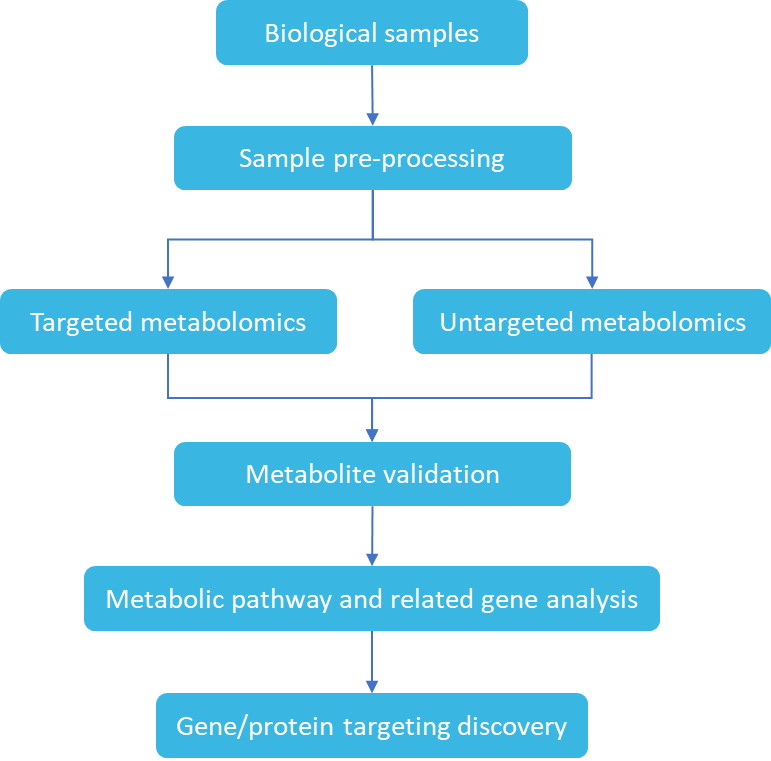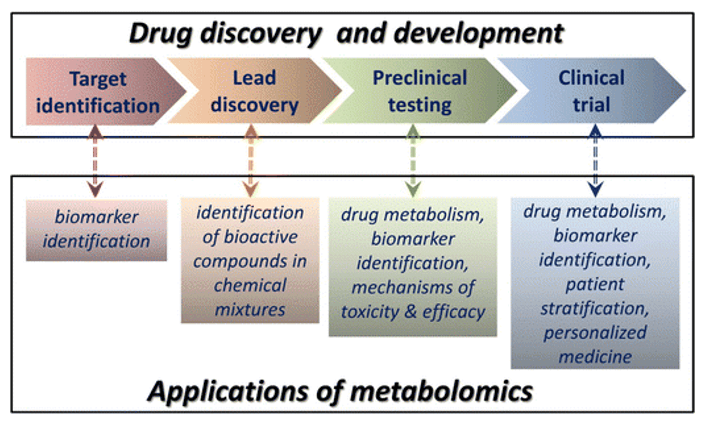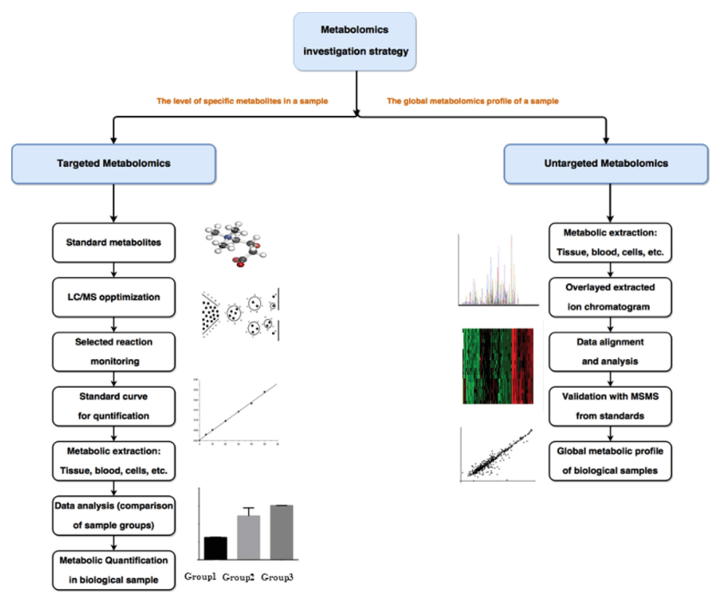Drug Target Discovery and Selection Services
Revealing drug targets through functional metabolomics
✔ Through precise identification of metabolome and metabolic pathways, it is possible to pinpoint a certain biological target of a disease, based on the modification and screening of compounds specific to and sensitive to that target
✔ Identification of functional metabolites closely related to disease development, construction of specific metabolomes and clarification of related metabolic pathways
✔ Identify specific biomarkers for disease diagnosis
Drug targets are the binding sites where drugs act with the body, including genes, receptors, enzymes, ion channels, transporters, nucleic acids, etc. The binding of a drug to a site affects the alteration of biological events, thus achieving the therapeutic effect of the drug.
More than 800 drug targets have been discovered, and the majority of them have receptors as their effector targets. Among them, G-protein coupled receptor (GPCR) targets occupy the majority of the receptor targets and become the most important targets of action. More than 20% of the drugs target enzymes, especially enzyme inhibitors, which also have a special status in clinical applications. Information on other drug targets is not yet clear, involving structural proteins, membrane transporters and other targets of action.
The metabolome study involves small molecule metabolites of living organisms in clinical samples and biological samples. The metabolome relies on the detection of NMR, GC-MS and HPLC-MS platforms, and the study of differential metabolites and key metabolites to construct metabolic pathways closely related to diseases and physiological functions. Specific biological targets can be found based on specific functional metabolites, and drugs can be developed for disease prevention, diagnosis and treatment.
Creative Proteomics utilizes metabolomics technologies and analytical strategies designed to assist you in accelerating your drug target discovery and selection programs. Metabolomics analysis can directly reflect the advantages of differential changes in biological events at the metabolite level to accurately reflect the disease process, so that more metabolites involved in disease targets can be distinguished and drug target discovery research can be facilitated.
Analysis Strategies for Drug Target Discovery and Selection Services
Untargeted metabolomics, as an unbiased metabolomic analysis, is easy to handle samples and can comprehensively and systematically reflect the metabolomic characteristics of biological samples. However, it has a limited linear range, poor reproducibility and complex metabolite confirmation. Targeted metabolomics has a wide linear range, good reproducibility and sensitivity, and simple metabolite confirmation. However, it requires prior knowledge of the analyte and is a biased metabolomics analysis. The combination of the two can be a powerful tool for differential metabolite discovery and accurate quantification.
- Drug target discovery: Using untargeted metabolomics techniques, we can perform systematic and comprehensive analysis of the entire metabolome based on limited relevant studies and background knowledge, and obtain data on a large number of metabolites and process them to identify differential metabolites.
- Drug target identification and validation: Using targeted metabolomics, only a limited number or classes of metabolites associated with biological events are analyzed and studied. The identification of differential metabolites by untargeted metabolomics is usually followed by further systematic corroboration using targeted metabolomics.

Creative proteomics uses metabolomics to understand disease, finding important targets closely related to disease through specific metabolite modifications in biological processes and metabolomic interventions, providing strong support for the discovery of lead compounds and the screening of drug targets. If you are interested in this topic or would like to learn more, please contact us. We are looking forward to working with you.
For Research Use Only. Not for use in diagnostic procedures.





